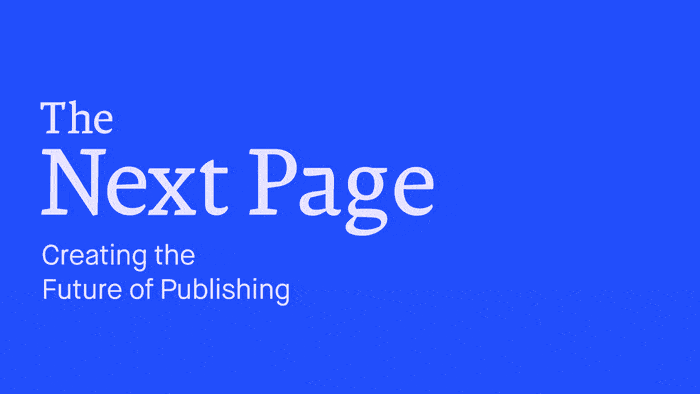In publishing, the ability to network can make or break careers. Whether you’re an author looking for representation, an agent looking for the next big talent, or an editor extending their reach into different genres or styles, networking never really becomes an optional part of the job. Though digital solutions for networking exist in the form of social media or dedicated (often private) chat channels, they are not quite enough to eliminate the barrier for aspiring or incoming publishing professionals who are looking to join the workforce.
Most publishing professionals find themselves at industry conferences at least once a year, given the chance. Whether they’re keeping up on trends or looking for a new position, the ability to attend a conference can make or break someone’s career in publishing. Tautologically, they are also very difficult to attend in person without already having a job with a press- or a publishing-adjacent company that can facilitate attendance. Travel costs, lodging, and tickets themselves are extremely cost prohibitive to some people, and that’s provided the event isn’t by invitation- or industry-only. So how, then, are incoming professionals meant to find the connections and information that would grant them access to those events, or to the industry as a whole?
That’s a question that’s too large to have a single answer, but on May 11, 2019, Margot Atwell, Director of Publishing at the popular crowdfunding website Kickstarter, sought to find a solution with The Next Page, a publishing conference that had no precedent. Working under the belief that, despite huge gains in the past decade, publishing “is not representative of the world we live in,” Kickstarter partnered with Fireside Fiction to try and change it with their first ever two-part publishing conference.
The one-day event, held at Kickstarter HQ in New York City, hosted some of the brightest and most respected voices in publishing today, including Portland publisher Joe Biel and former Ooligan editorial professor Dongwon Song, to discuss the future of publishing in an ever-changing landscape. The panels, in almost every sense, were very close to other publishing conferences, each about an hour long and spanning an array of four different topics: finances, representation, technology, and community building. The panelists and moderators were vetted professionals not only in book publishing, but in magazine, comic book, and web spaces, providing a colorful and varied view into today’s current publishing climate, and a not-inconsiderable audience who attended the conference at the Kickstarter HQ in Brooklyn.

From left to right: Margot Atwell, Dongwon Song, Amy Stolls, Joe Biel, and Ruby sit on the panel ‘Paying the Way: Economic Sustainability in Publishing.’
But what made The Next Page truly unique was its choice to livestream each panel for free to the public, requiring only an RSVP via the Kickstarter website. After following the livestream link to the Kickstarter YouTube channel, digital attendees could watch and participate in conversations through a live chat (which I was honored to be asked to moderate), send in their questions via chat or email for the panelists, and have the conference experience in pajamas in bed or sitting at their kitchen table. It didn’t require taking time off work for travel, finding lodging in an overwhelmingly crowded city, or handling all the little extra expenses that come with most out-of-town conferences.
Moreover, the addition of a digital format allowed The Next Page to truly address accessibility and the limitations barring so many people from joining the industry. Not only did they live-tweet parts of the panels, which is standard, they archived the videos for later viewing for those who could not attend, and, after reviewing concerns from participants, moderators, and attendees, ensured every video provided closed captioning for the hearing impaired. At a time when accessibility for panelists with mobility aids is often overlooked until it’s too late, Kickstarter didn’t shy away from the extra time or money it cost to ensure they were practicing what they preached.
So the real question is, why don’t more conferences do this? Whether for established professionals or those trying to find their footing, the concept of using technology to bridge gaps and lower accessibility barriers for audiences isn’t new for publishing. Having been a part of this conference, I can only think about how much stress I avoided not having to rush around a convention center, how much money I saved by participating from my home office, and how many connections I made through the live chat with participants despite being hundreds of miles away, including one that eventually landed me a gig. While I wouldn’t suggest industry-only conferences throw their doors open as free events, tools certainly exist to ensure the target audience is in attendance while also encouraging greater engagement. Digital solutions shouldn’t and do not have to be exclusive to those with the extreme financial flexibility that seems to be a prerequisite for a successful publishing career, and I hope that other conferences were watching closely.
With the outbreak of COVID-19, we saw an abrupt shift as the world moved their classrooms, conferences, and workdays all into a digital space. It’s unclear if Kickstarter will be hosting The Next Page sometime in 2020, but one thing is certain: this conference filled a gap where it was needed, a genuine way to uphold publishing by sharing information, knowledge, and community in an industry we feel strongly about, made all the better by the earnestness with which it attempted to level the playing field. And there’s no question at all that Kickstarter walked so the rest of us—publishers, editors, and writers alike—could run.
The Next Page 2019 archives can be found via their website, and I have it on good authority that it’s more enjoyable if you stay in your pajamas.

